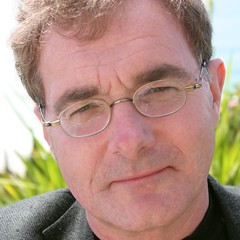
Ronald Bailey
The Democratic Threat to Transhumanism
Do you think your neighbors should get to vote on whom you marry?
Whether you should be able to use contraception? Likely not. So why
should people get to vote on whether you can increase your healthy
lifespan using transformative technologies? For example, using human
embryonic stem cell lines to cure your illnesses? And why should
balloting limit your access to new reprogenetic technologies?
Unfortunately, contemporary history shows that majorities in modern
democracies are only too happy to ban technologies (e.g., stem cells,
cloning, PGD) that are the precursors to transhuman progress. As
philosopher Jurgen Habermas noted, for modern liberals “human rights
enjoy normative priority over democracy, and the constitutional
separation of powers has priority over the will of the democratic
legislature.” As a minority preference (at least for now)
tranhumanists must argue for liberty and oppose democratic
authoritarianism. When people of good will deeply disagree on moral
issues that don't involve the prevention of force or fraud, it is a
fraught exercise to submit their disagreement to a panel of political
appointees or a democratic vote. That way leads to intolerance,
repression, and social conflict.
Ronald Bailey is the award-winning science correspondent for Reason magazine and Reason.com, where he writes a weekly science and technology column.
Bailey is the author of the book Liberation Biology: The Moral and Scientific Case for the Biotech Revolution (Prometheus, 2005), and his work was featured in The Best American Science and Nature Writing 2004.
In 2006, Bailey was shortlisted by the editors of Nature Biotechnology as one of the personalities who have made the "most significant contributions" to biotechnology in the last 10 years.
From 1987 to 1990, Bailey was a staff writer for Forbes magazine, covering economic, scientific and business topics. His articles and reviews have appeared in The New York Times, The Wall Street Journal, The Washington Post, Commentary, The Public Interest, Smithsonian, Chief Executive, TechCentralStation, National Review, Reader's Digest and many other publications.
Prior to joining Reason in 1997, Bailey produced several weekly national public television series including Think Tank and TechnoPolitics, as well as several documentaries for PBS television and ABC News. In 1993, he was the Warren T. Brookes Fellow in Environmental Journalism at the Competitive Enterprise Institute.
Bailey won a 2004 Southern California Journalism Award for best magazine feature for his story, "The Battle For Your Brain," which delved into the ethical and political conflicts over new brain enhancement technologies. In 2005, Bailey won a first place Southern California Journalism Award for best online commentary for his series on creationism, "Creation Summer Camp".
Bailey is the editor of several books, including Global Warming and Other Eco-Myths: How the Environmental Movement Uses False Science to Scare Us to Death (Prima Publishing, 2002), Earth Report 2000: Revisiting The True State of The Planet (McGraw Hill, 1999), and The True State of the Planet (The Free Press, 1995). He is the author of ECOSCAM: The False Prophets of Ecological Apocalypse (St. Martins Press, 1993).
Bailey has appeared on numerous television and radio programs, including the NBC Nightly News, PBS' Newshour, several National Public Radio programs, and various C-SPAN programs. He has lectured at Harvard University, Yale University, Morehouse University, Princeton University, the Massachusetts Institute of Technology, Rutgers University, American University, the University of Virginia, McGill University, the Medical University of South Carolina, University of Alaska-Anchorage, University of Maryland-Baltimore County, Longwood University, Universite de Quebec, Rochester Institute of Technology, Universidad de San Andreas (Argentina), the Cato Institute, the Foundation for the Future, the Association for Politics and the Life Sciences, the World Futurist Society, the Instituto de Libertad y Desarrollo (Chile), and the American Enterprise Institute..
In 2004, Bailey testified before a congressional committee on "The Impact of Science on Public Policy".
He is a member of the Society of Environmental Journalists and the American Society for Bioethics and Humanities.
Bailey is a graduate (with High Distinction) of the University of Virginia (1975) where he double-majored in economics and philosophy. Unaccountably, he spent a year-and-a-half in law school at UVA before realizing that if he were to complete his studies there he would most likely become a lawyer.
Bailey lives in Washington, DC, and Charlottesville, Virginia, with his wife Pamela.
